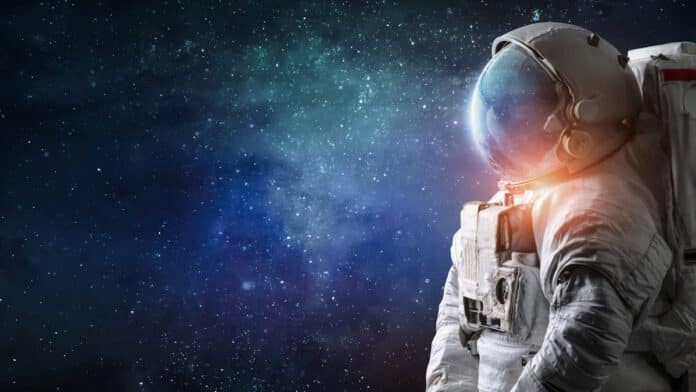An ankle sprain on Mars? An earache on the Moon? NASA and Google are building a proof-of-concept AI medical assistant designed to guide astronauts through diagnosis and treatment millions of miles away from home, with no doctor, no real-time help required from Earth.
The automated Clinical Decision Support System (CDSS) called the “Crew Medical Officer Digital Assistant” (CMO-DA) is designed to help astronauts with medical issues during extended space missions.
Developed as part of NASA’s Artemis program, CMO-DA aims to put humans back on the Moon and eventually set foot on Mars. On such missions, communication delays could stretch up to 20 minutes each way, and medical evacuations would be impossible.
CMO-DA is built for a future where space travellers on long missions are truly on their own, which means they will have to handle more health issues themselves — from stomach bugs to broken bones — without the instant lifeline to Earth that crews on the International Space Station (ISS) enjoy.
How Does This AI Doctor Work?
Running on Google Cloud’s Vertex AI platform and trained on spaceflight medical literature, CMO-DA uses speech, text, and images to assess symptoms, suggest possible diagnoses, and recommend treatments.
This capability is crucial for managing the health of astronauts during extended missions where traditional medical support is not feasible.
In early trials, like ankle injuries, flank pain, and ear pain, the AI achieved diagnostic accuracy rates ranging from 74% to 88%. The outputs were measured using the Objective Structured Clinical Examination (OSCE) framework, a tool used to evaluate the clinical skills of medical students and working healthcare professionals.
Evaluations were carried out by a panel of doctors — one of whom was an astronaut — using a medical assessment framework normally applied to real clinicians.
NASA’s next steps are to feed it more data from medical devices like ultrasounds and address the shortage of resupply missions for medical provisions and accounting for unique space-related health conditions such as microgravity’s impact on the human body. While designed for space, the technology could also have Earth-based benefits, particularly in remote areas with limited medical access.
“Microgravity can have numerous effects on the body, such as bone density loss and muscle atrophy, which require constant monitoring and intervention measures that traditional earth-bound medical systems aren’t designed to handle.
The CMO-DA, therefore, incorporates space-specific medical knowledge to support astronauts’ health autonomously during their missions,” Mackenzie Ferguson, AI Tools Researcher & Implementation Consultant, wrote in a news release.
While the project is designed for deep-space missions, experts say its capabilities could also bring better medical care in remote villages, disaster zones, or anywhere a doctor can’t get to right away.
“The tool not only could improve the health of astronauts in space, but the lessons learned from this tool could also have applicability to other areas of health,” said David Cruley, a customer engineer at Google’s Public Sector business unit.
For now, CMO-DA is still just a prototype phase — but if all goes to plan, one day astronauts on the Moon or Mars could be getting medical advice from an AI doctor born right here on Earth, ready to work in orbit and beyond.

